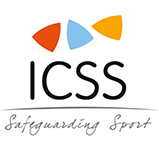ICSS Releases Case Study Report in Collaboration with WHO on the Impact of COVID-19 on Grassroots Sports
The ICSS announced today the findings of a case study conducted with support of the World Health Organization (WHO), titled ‘The Impact of COVID-19 on Grassroots Sports – Experiences from a constantly changing and challenging scenario’. The report can be accessed here.
The multicentric collective case study presents an in-depth exploration of the social impact of COVID-19, providing examples of what grassroots sports organisations have done to navigate, recover and even thrive during national emergencies amidst the global pandemic.
The 50-page study comprises four cases from Australia, India, South Africa, and Spain, including AusCycling, the national governing body for bicycle racing in Australia; India’s Pro Sport Development, a social enterprise that uses sport as a tool for the holistic development of children and youth; Grassroot Soccer South Africa, an adolescent health organization that leverages the power of soccer to educate, inspire, and mobilise at-risk youth; and Dragones de Lavapiés, a community football club in a multicultural neighborhood in Madrid, Spain, featuring a sizeable immigrant population.
The report conclusions show a strong determination by the four grassroots sports organisations to develop various online platforms to engage youth to stay connected and active virtually and in real life during lockdowns – creating therefore a wider community engagement.
The study findings also provide guidance in terms of adjusting to the new normal through the delivery of grassroots sports programmes in schools’ facilities including playgrounds and classrooms, community sports and skills development centers.
The results have shown that there is a general consensus that children and young people cannot be prevented from engaging in open air sports activities while recognising the fact that the hygiene measures and protocols remain the first line of defense.
Part of the findings included the benefits of providing psychosocial support to young people during the pandemic through risk assessment tools run by social workers along with the development of COVID-19 curriculums based on WHO guidelines.
A real diversity of actions with differential outcomes for people from various socioeconomic backgrounds was exposed in the findings. The report underlines that compliance with policies and strict protocols has, perhaps, forever, changed how children, young people, and adults engage in grassroots sports.
Magda de Lange, Head of Research and Strategic Studies at the ICSS, noted that COVID-19 affected grassroot sports on many levels. “Using a case study approach, involving key informant interviews and questionnaires, we were able to gain insight and generate themes to highlight the most salient challenges and experiences faced by community sport during the pandemic,” she said.
Commenting on the release of the case study report, Dr. Maurizio Barbeschi, Senior Adviser to the Executive Director, WHO Health Emergencies Programme, explained that in recent decades much work has indeed been undertaken, led by WHO, to better manage mass gatherings, including major sporting events. A set of key planning recommendations for mass gatherings in the context of COVID-19 and a COVID-19 risk assessment and mitigation tool were rapidly developed in 2020 to offer guidance to major sporting event organisers. “Now an important effort is underway to expand the scope of these activities to also protect the basis of the pyramid of sport,” he added.
“We are grateful to WHO and all those who have contributed to this report since they gave us the opportunity to give a voice to the most vulnerable, namely the grassroots organisations, highlighting their needs, their challenges, but also their capacity to find solutions in spite of the financial constraints,” emphasized the ICSS Chief Executive Officer, Massimiliano Montanari.

